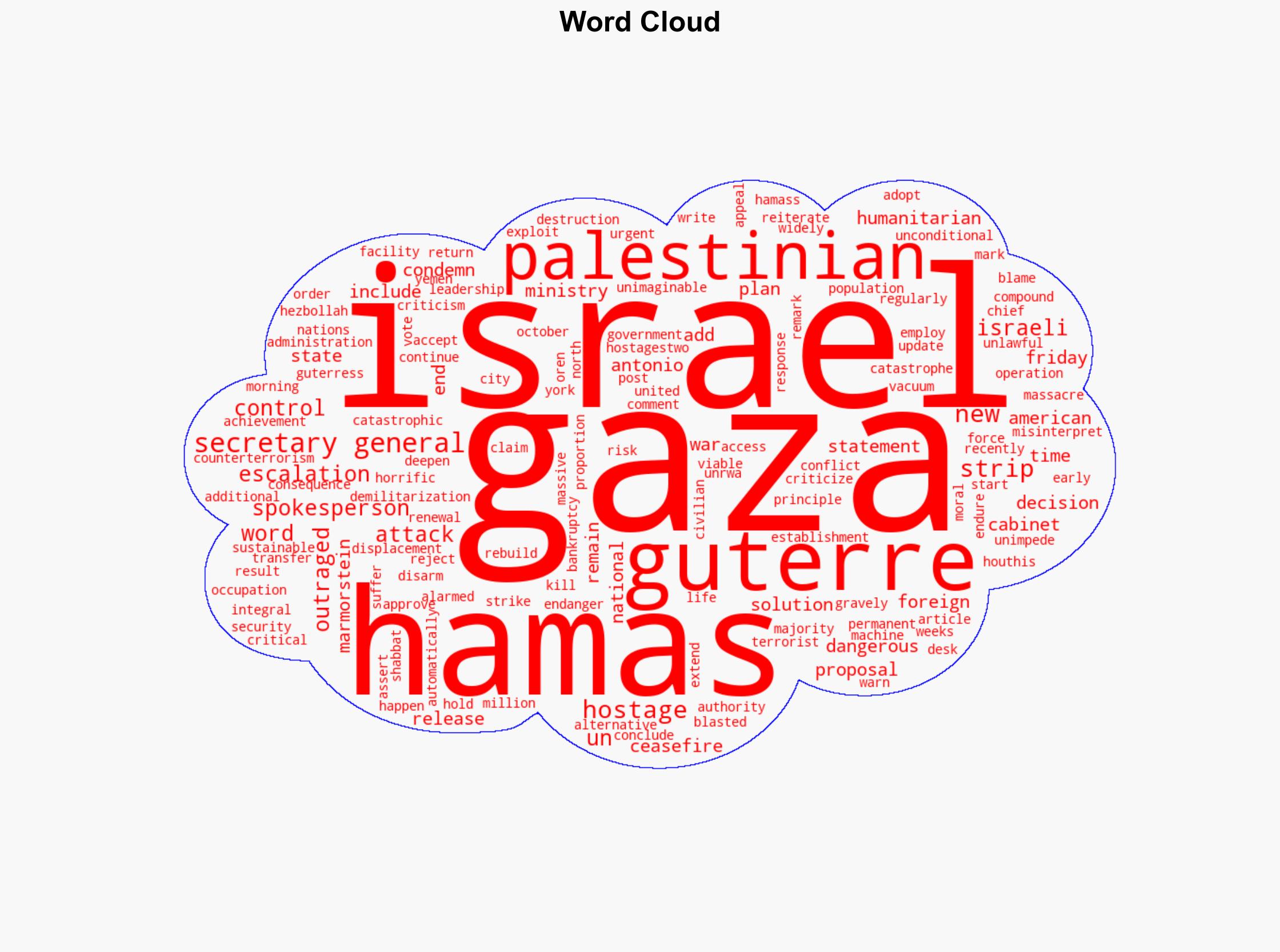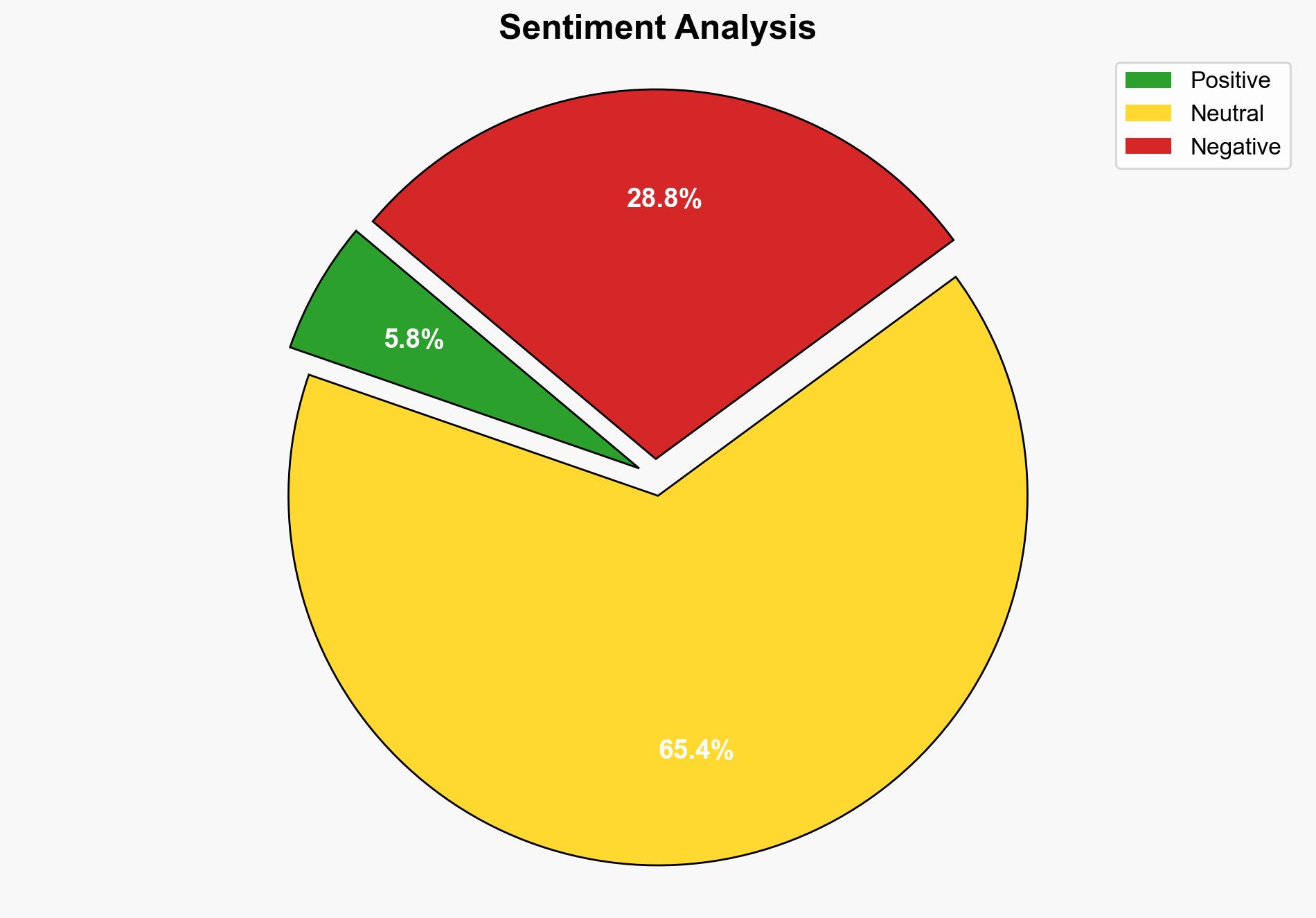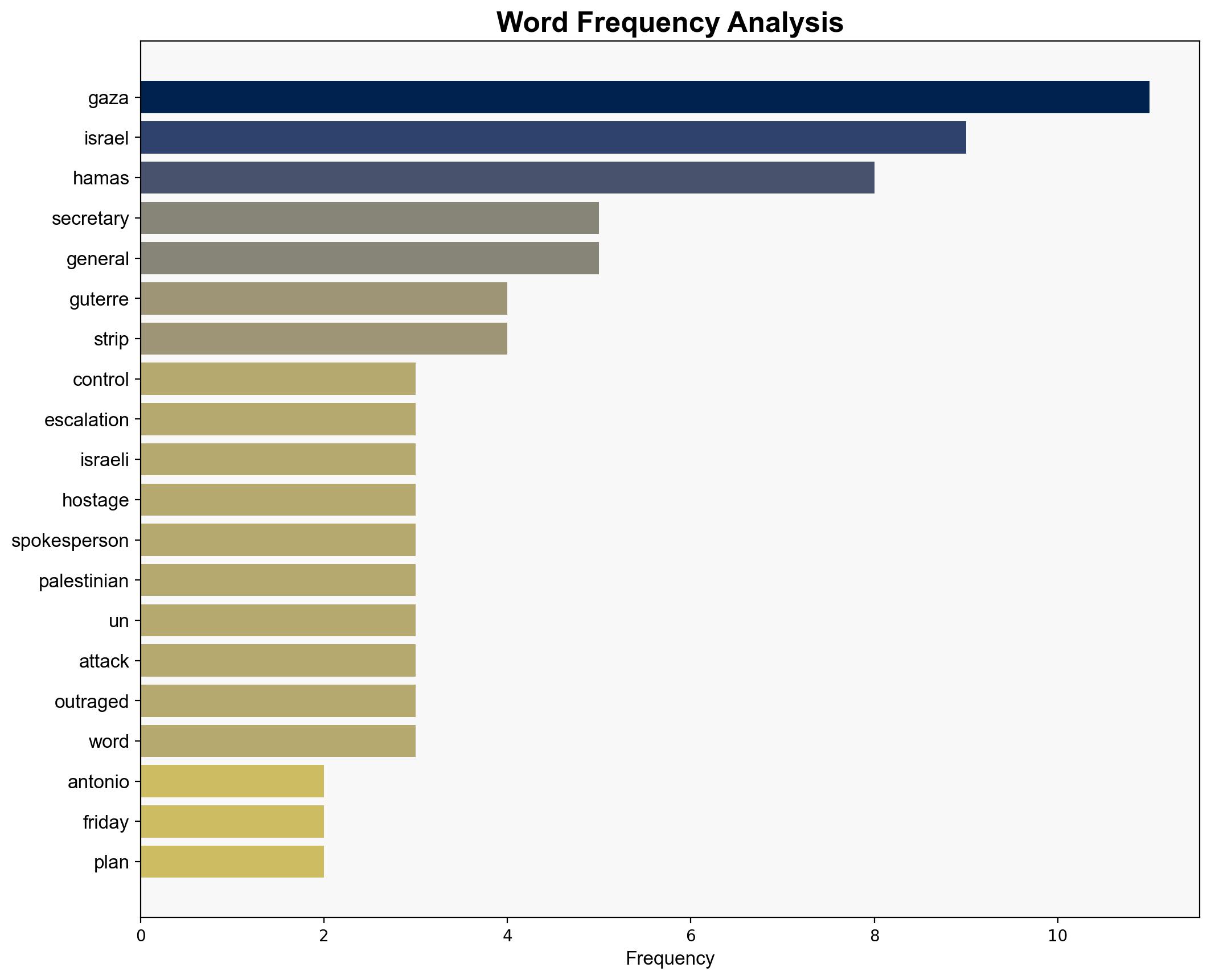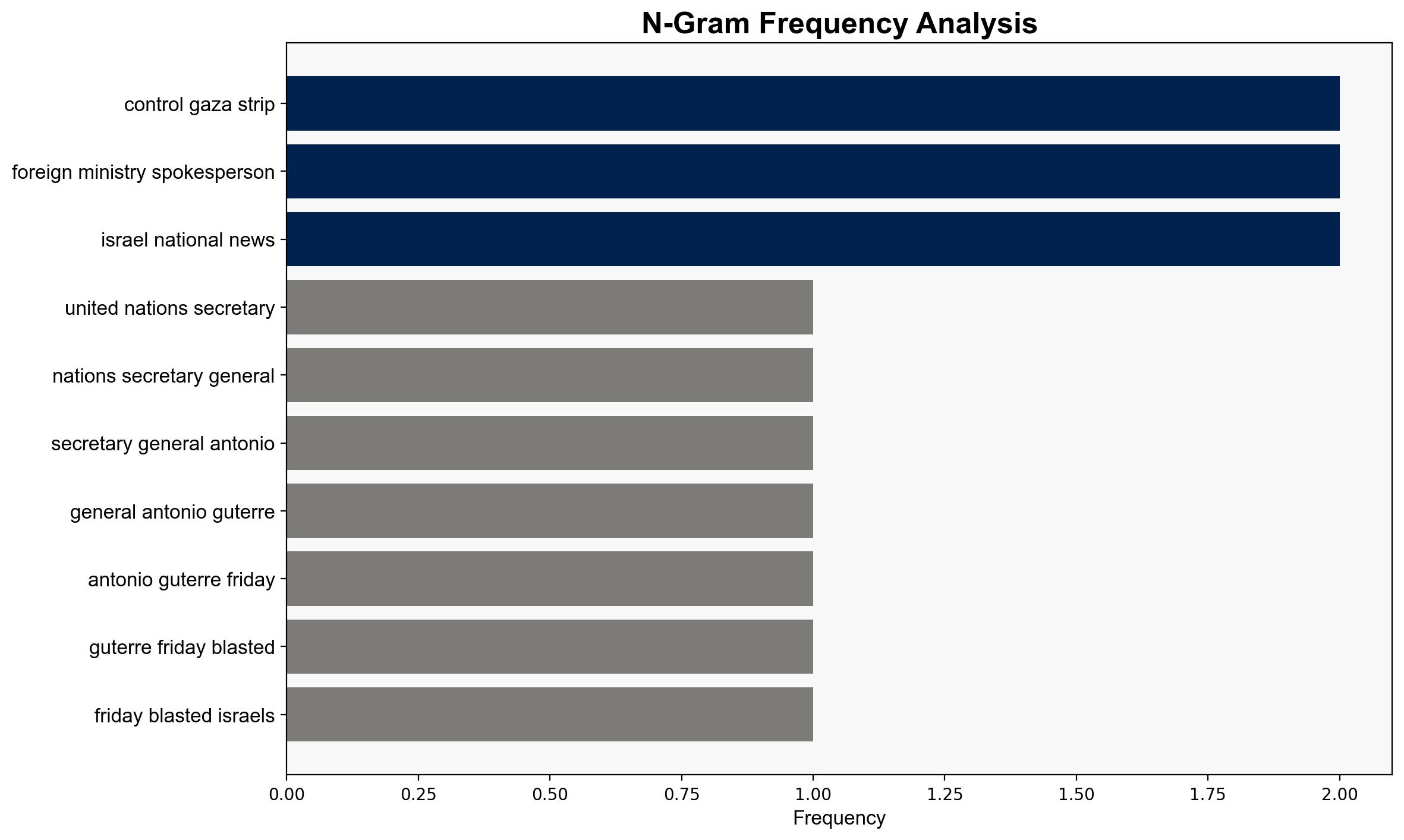UN chief Israeli plan to control Gaza is a dangerous escalation – Israelnationalnews.com
Published on: 2025-08-08
Intelligence Report: UN chief Israeli plan to control Gaza is a dangerous escalation – Israelnationalnews.com
1. BLUF (Bottom Line Up Front)
The most supported hypothesis is that Israel’s plan to control Gaza represents a strategic move to ensure security and stability, albeit with significant humanitarian and geopolitical risks. Confidence level: Moderate. Recommended action: Engage in diplomatic efforts to mediate between Israel and the UN to address humanitarian concerns while considering security imperatives.
2. Competing Hypotheses
1. **Hypothesis A**: Israel’s plan to control Gaza is primarily a security measure aimed at disarming Hamas and preventing future attacks, with the intention of stabilizing the region.
2. **Hypothesis B**: The plan is a strategic maneuver to assert long-term control over Gaza, potentially undermining Palestinian statehood and escalating regional tensions.
Using ACH 2.0, Hypothesis A is better supported by Israel’s stated objectives of disarming Hamas and securing the release of hostages. However, Hypothesis B is supported by historical patterns of territorial control and the UN’s concerns about escalation.
3. Key Assumptions and Red Flags
– **Assumptions**: Hypothesis A assumes Israel’s actions are purely defensive and security-driven. Hypothesis B assumes a strategic intent to alter the status quo in favor of Israeli territorial interests.
– **Red Flags**: The lack of clear communication from Israel regarding long-term governance plans for Gaza. Potential cognitive bias includes confirmation bias in interpreting Israel’s actions as purely aggressive or defensive.
– **Inconsistent Data**: Discrepancies in international responses and interpretations of Israel’s intentions.
4. Implications and Strategic Risks
– **Geopolitical Risks**: Increased tensions between Israel and neighboring countries, potential for broader regional conflict.
– **Humanitarian Risks**: Escalation could exacerbate the humanitarian crisis in Gaza, leading to further displacement and suffering.
– **Economic Risks**: Prolonged conflict could disrupt regional trade and economic stability.
– **Psychological Risks**: Heightened fear and mistrust among Palestinian and Israeli populations, potentially fueling further radicalization.
5. Recommendations and Outlook
- Engage in diplomatic dialogue to address both security and humanitarian concerns, involving key international stakeholders.
- Monitor for signs of escalation and prepare contingency plans for potential regional conflict.
- Scenario Projections:
- Best Case: Successful mediation leads to a ceasefire and humanitarian relief.
- Worst Case: Escalation into broader regional conflict with significant casualties.
- Most Likely: Continued tension with intermittent conflict and diplomatic efforts to stabilize the situation.
6. Key Individuals and Entities
– Antonio Guterres
– Oren Marmorstein
– Hamas
– Israeli Government
7. Thematic Tags
national security threats, humanitarian crisis, geopolitical strategy, regional stability




